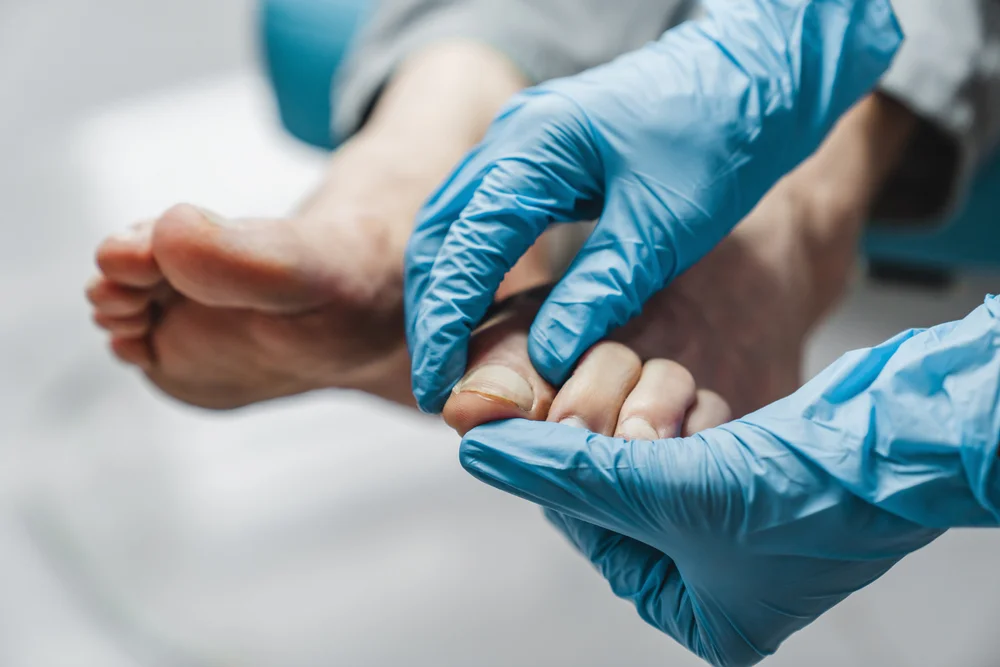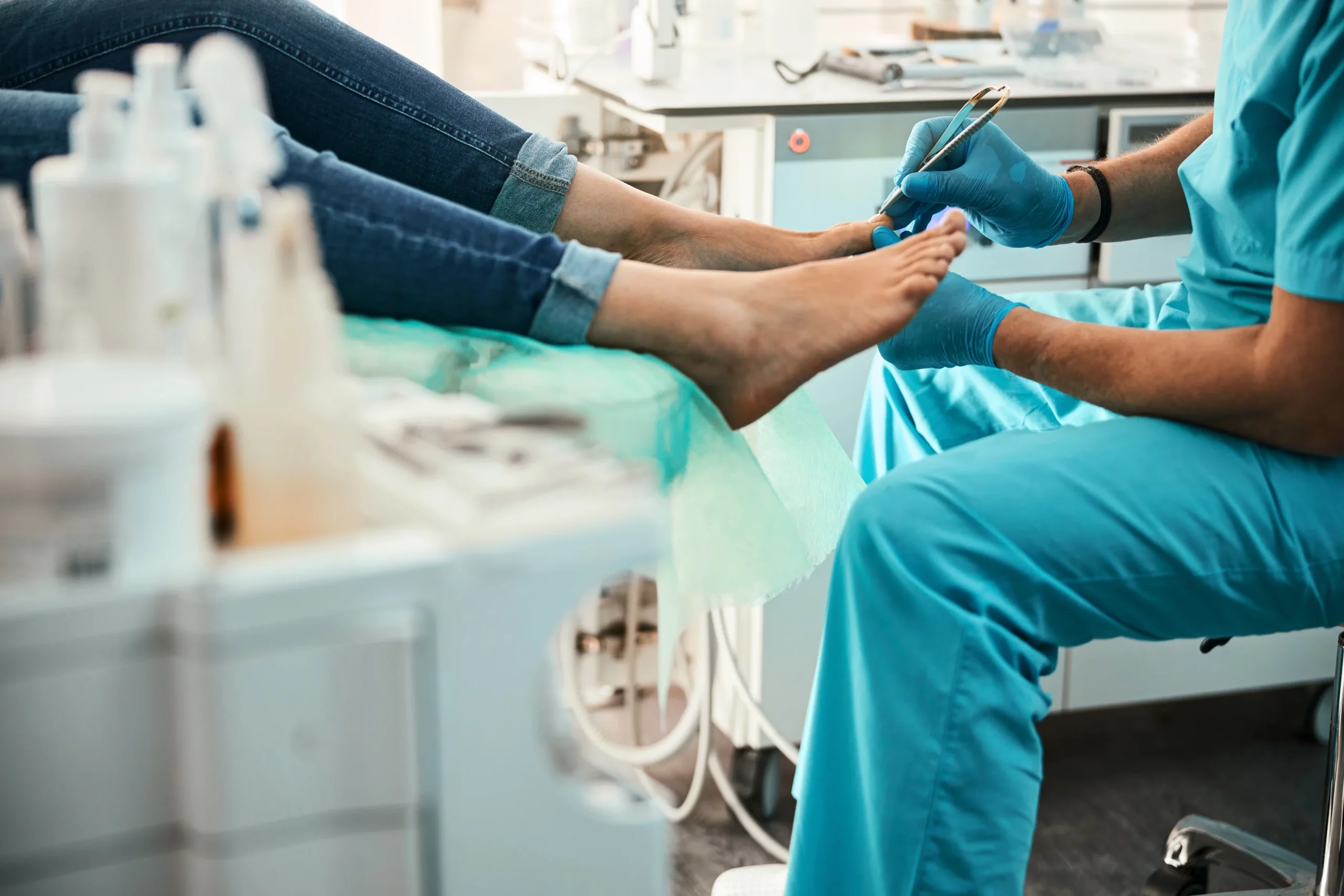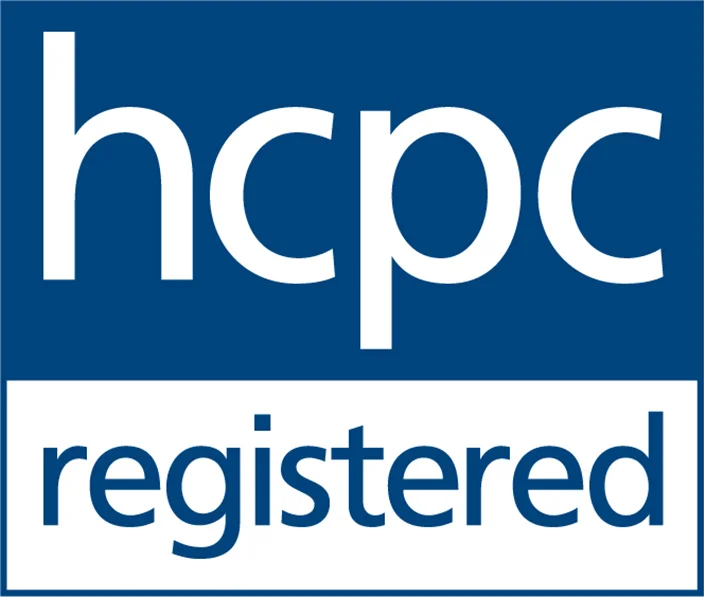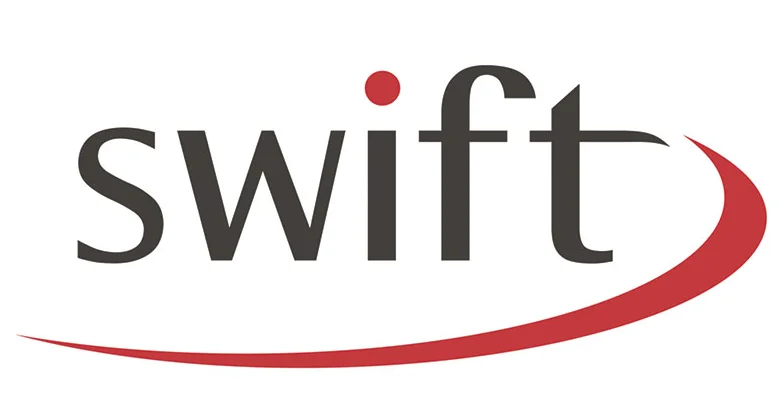Ingrowing Toenail Treatment
Ingrowing toenails are one of the most common problems we treat at Quest Podiatry. They occur when a piece of nail pierces the flesh of the toe and can be extremely painful. In more severe cases, they can become inflamed or infected.
Our podiatrists are skilled and experienced in assessing and treating ingrowing toenails.


What is an ingrown toenail?
Ingrown toenails typically occur when the edges or the corners of your nails grow out in the wrong direction and pierce the skin or soft flesh next to the nail. This is most likely to happen on your big toe and could occur for a number of reasons.
Ingrown toenails can sometimes be treated at home; however, this is likely to lead to infection, among other problems if treated incorrectly and could end up requiring much more medical attention. The risk of complications is much higher if you already suffer from existing health issues that can cause problems with your feet, low blood pressure or poor circulation, such as diabetes.
What are the causes of Ingrown toenails?
Ingrown toenails can occur for anyone, man or woman, young or old, but they are more common among those who are older in age as when we get older, the toenails will thicken. They are also more common among teenagers and children; this is because their feet are more likely to sustain injury due to a more active lifestyle.
Other contributing factors to ingrown toenails include:
- Incorrectly cutting your toenails (Toenails should be cut straight across, level with the end of the toe. If the toenails are cut at an angle, this could encourage the nail to grow sideways and into the skin.)
- Naturally or genetically curved nails.
- Incorrectly fitting footwear that applied excess pressure to the toe area of the foot. This could be shoes that are too tight and narrow or socks that are too thick and cause the shoes to squeeze the toes.
- Any injuries to the toes that could have caused damage to the nails, E.g. stubbing your toe or dropping something on it.
- Poor posture or walking gait.
- Poor foot hygiene.
Treatment options for Ingrown toenails?
There are two main types of surgical treatment for ingrown toenails.
Partial nail avulsion – This is where only a narrow section on either one or both sides of the nail is taken away in order to remove the offending part.
Total nail avulsion – This is where the entire nail is removed. The nail matrix (the base of the nail) will then be painted with a chemical called phenol to prevent the regrowth of the nail. This prevents the nail from regrowing predictably incorrectly.
A total nail avulsion is not usually necessary as in 98% of cases, a partial nail removal is enough to correct the problem.
What happens during a partial nail removal (partial nail avulsion)?
When undertaking partial nail removal surgery, we will numb the toe using a local anaesthetic and then remove the ingrown section of the nail. This is a quick and permanent solution to painful ingrown nails. You can usually return to your normal day-to-day activities the following day; however, we recommend that you stay away from sports and other strenuous activities for a couple of weeks.
Frequently Asked Questions
You should not try to treat ingrown nail yourself. Performing the wrong treatment could worsen your problems and lead to an infection. If your ingrown toenail has any of the following symptoms, you should visit a podiatrist as soon as possible:
- It is warm to the touch
- It is red or swelling
- It oozing pus or blood
- It is very painful and has been present for more than a couple of weeks
Soak your toe regularly in a warm mixture of saline solution. Do this for roughly 10 to 15 minutes three times a day. This will help to keep the area clean, as well as soften the skin surrounding the toenail. Ensure when finished, your feet are dried thoroughly and you are putting on a clean pair of socks.
Wear wide-fitting and comfortable shoes; we find that sliders are the best. This prevents any excess pressure from being put on the painful toenail.
Prevention is always better than treatment when it comes to ingrown toenails. Here’s what you can do to prevent ingrown toenails:
Choose the right shoes.
Shoes that do not fit correctly and place excess pressure on the toes, either pinching them together or pressing them in any other manner, can cause your nails to become ingrown. If you have diabetes or any other reason for a reduced sense of sensation in your feet, you may not realise that your shoes are pressing on your toes.
Check your feet for any injuries.
As mentioned previously, if you have a loss of sensation in your feet, you may not notice that you have sustained an injury on your feet which could be making the problem worse. Give your feet a good check to prevent any injuries or ingrown nails from going unnoticed.
Wear protective footwear when necessary.
If you work in a hazardous environment or partake in activities that could put your feet at risk of injury, wear protective footwear such as steel-toe boots. An injury could be the cause of an ingrown toenail.
Correctly cut your toenails. While it may seem a simple task, many people still incorrectly cut their toenails. When cutting your nails, ensure that they are cut straight across without any curves.
Don’t cut your toenails too short.
Following on from our previous point, do not cut your toenails too short. This can allow pressure from your shoes to prevent your nails from growing back correctly. You should cut your toenails, level with the edge of your toe.
See why patients love Quest Podiatry
John Barrat2023-07-11Excellent service served by friendly staff in a smart new suite with easy on street parking.Sam Foster2023-07-04I had a very good experience here with Neus who did my treatment. I used to be embarrassed to show my feet before, but now I can happily show them off. Highly recommend.Lol2023-07-04Highly recommend. Fantastic clinic, very professional team and brilliant services. Thank you.Teija Wynn2023-06-30Fantastic clinic! Neus was amazing. The clinic is clean, fresh and modern and the service is second to none.Madeleine Wright2023-06-23Highly recommend!! Very welcoming, professional and clean! All foot appointments have been excellent and caring. I have also found that the 3D gait analysis assessment was extremely helpful for my marathon training and injury problems. Quest is top quality with an amazing team!!GRAEME HEDGES2023-06-23Great service and all round experience, will come back if needed, would recommend.Alan McEwan2023-06-23First time visiting this Clinic. Staff were extremely helpful, friendly and knowledgeable . Highly recommendChris Rigby2023-06-23Fantastic service and superb surroundings, highly recommended.Jenna Barnes2023-05-19On behalf of Stella Murray who visited the clinic. "I have had excellent caring and regular treatment for an ingrowing toe nail. I had instant relief on the first treatment and I am continuing regular treatment with Neus as the nail grows. I received a warm welcome at the clinic and I look forward to have a delightful practitioner in Neus. Highly recommend the lovely team at Quest."Trevor Masters2022-12-19I'm really late doing this , my toes were in a shocking state , I was in absolute agony and being a typical male carried on regardless . IDIOT !! Found Quest , omg , they were absolutely fantastic , from booking in , receptionist fabulous , consultation amazing , treatment brilliant .Anna and her team are amazing , thank you so so much !Google rating score: 5.0 of 5, based on 24 reviews





